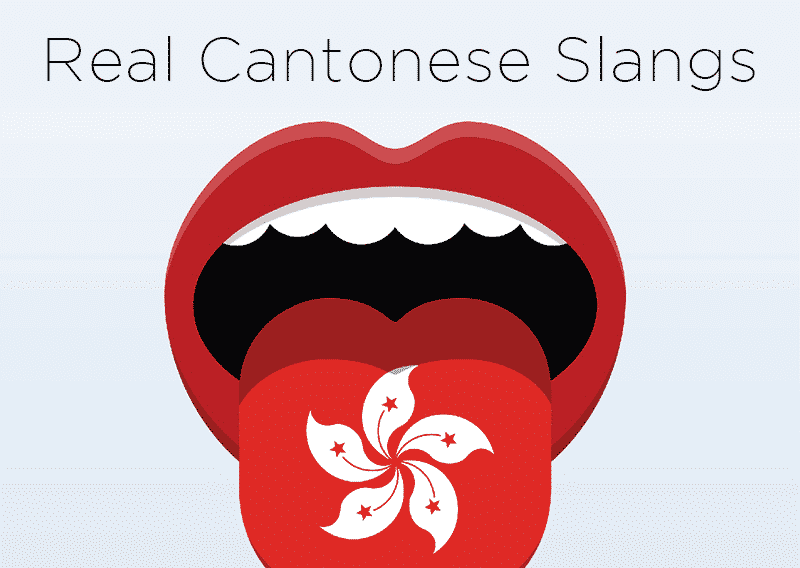7 CANTONESE SLANG PHRASES GUARANTEED TO IMPRESS A LOCAL

Attention non-Cantonese speaking Hong Kong residents and visitors. There’s nothing more fascinating or bewildering than seeing a foreigner articulate an emotion using local Cantonese slang. And no. I don’t mean “Nei Ho Ma” and “Sik Tang Ng Sik Gong” – that’s so last-decade. You need to dig deeper and say something to leave locals speechless!
Cantonese is a famously tricky language, made up of colourful colloquialisms and slang. Below are some useful and funny Cantonese phrases that will have you talking like a local in no time.
You need to dig deeper. Something to blow their minds. Make them feel like you’ve just deciphered their unfathomable enigma.
Learn these phrases and you’ll be guaranteed THIS reaction:
Let us begin:
1. “Wanna go to Muk Gei?”(麥記)
Definition: It’s just short for MacDonald’s
When to say it: You’re stomach’s growling but you don’t fancy spending $400 HKD on a salad and a drink. You turn to your local friend and say, “Hey! Feeling a bit hungry, wanna go to Muk Gei?”
2.“Don’t be such a Siu Hok Gai!” (小學雞or literally, Primary Chicken)
Definition: Immature, childish, foolish
When to say it: You’ve got that obnoxious friend (whom you still love dearly) doing something downright stupid. Give him a slap across the head and say, “Don’t be such a Siu Hok Gai!”
3. “He’s so Chisin!”(痴線)
Definition: Disbelief. Outrageous. Unbelievable.
When to say it: When you can’t believe something ridiculous just happened like the minibus driver not stopping for you so you go, “Chisin!”
*BONUS! How to say it: You’ll hear locals belting it out like “CHIIIIIIISIN” with an elongated “I” or it can be short and sweet with an extra oomph on the “chi” so it’s just CHIsin.
4. “I thought it was only Ma-Ma-Dei!”(麻麻哋)
Definition: So-so, average
When to say it: You just saw a movie and your colleagues asked if it was good. You respond, “Ehhh, it was only Ma Ma Dei!”
5. “He seems so HEA”
When describing a situation: Chilled, ordinary, unexciting
When to say it: Monday morning and you’re back at the office. Colleagues asked you how your weekend was (your weekend was full of drinking and partying but they don’t that about you) so you say, “The weekend was pretty HEA…stayed home and watched TV!” LIES.
When describing a person: Can imply lazy, or not taking something seriously
When to say it: Your boss has been doing absolutely nothing for the past few hours. You turn to your colleague with an unamused look and say, “ugh…look at him, he’s so HEA.”
6.“Ding! It’s not working!” (頂)
Definition: It’s simply another way of saying “CRAP!” or “SH*T” used to express one’s distress.
When to say it: Your Internet crashed. You’ve unplugged the cords you don’t know how many times. So you let out a cry of distress, and shout, “DING!”
7. “It’s a Fuk!” ( 伏 )
Definition: Trap
When to say it: This Cantonese phrase may make you blush but it merely insinuates when something or someone is misleading or questionable. Is a great to use whilst out shopping at the market or when entering a dodgy part of town.
So the next time you find yourself mingling with locals and are looking to give off a good first impression, please refrain from saying “Jo Sun” (good morning). Instead, try one of the above basic Cantonese phrases.
You’re welcome.
Make sure you book a room at Ovolo Central or Ovolo Southside, mou dak ding ah!
Jessica Tryde, born in Australia, bred in Taiwan, is a creative English copywriter living in Hong Kong. Her job includes whipping out creative ideas and digital executions. During her spare time, you’ll find her weight lifting in the gym, training for a gladiatorial bloodbath in a Muay Thai class or attempting to perform a yoga pose. If not working out, you’ll find her mingling with the locals at the wet market or reading at a local Hong Kong café.

